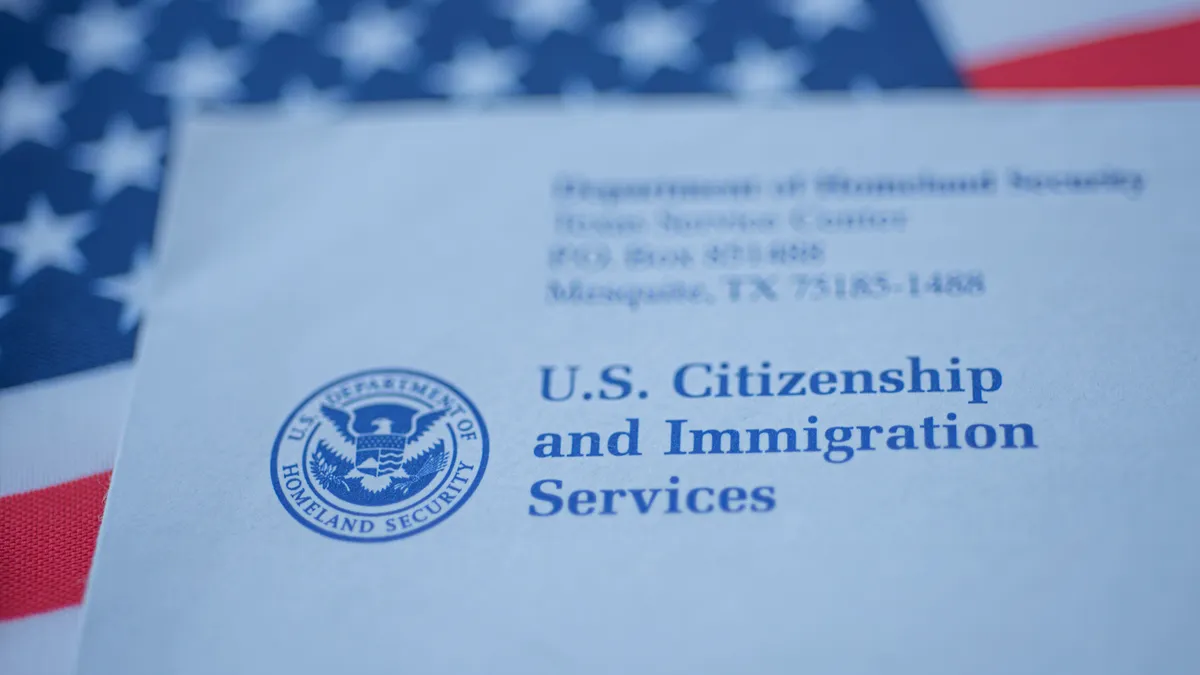Dive Brief:
- The U.S. Department of Homeland Security announced Friday a proposed rule to amend H-1B visa regulations in what it said is an effort to “modernize” the H-1B program, which permits U.S. employers to hire foreign workers to fill certain specialty occupations.
- The rule would amend the definition of “specialty occupation” to specify that a direct connection must exist between an occupation and the degree field required by the employer for the occupation. It also would expand exemptions from annual visa petition caps to certain nonprofit and government research organizations.
- DHS also aims to address H-1B fraud through the rule, which would change the agency’s registrant selection process to select by unique beneficiary rather than by registration, as well as prohibiting related entities from submitting multiple registrations for the same beneficiary. The proposal is subject to a 60-day public comment period that closes Dec. 22.
Dive Insight:
The proposal follows up on DHS statements earlier this year regarding concerns that some employers sought an unfair advantage in the H-1B selection process by submitting multiple eligible registrations on behalf of the same beneficiary.
In Friday’s announcement, the agency said that the current H-1B lottery selection favors individuals who have had multiple registration submissions on their behalf. By changing the process to enter individual beneficiaries into the lottery just once, regardless of the number of registrations submitted for each individual, DHS said its proposal would reduce or eliminate the advantage of submitting multiple registrations for the same beneficiary.
“DHS continues to develop and implement regulations that increase efficiency and improve processes for employers and workers navigating the immigration system,” Secretary of Homeland Security Alejandro Mayorkas said in the announcement. “The Biden-Harris Administration’s priority is to attract global talent, reduce undue burdens on employers, and prevent fraud and abuse in the immigration system.”
Overall the proposal “would have broad consequences” for the H-1B program, attorneys for immigration law firm BAL wrote in an article Friday. BAL added that the rule’s timetable is unclear — and a final rule may not be effective for H-1B cap registrations for the 2025 fiscal year.












